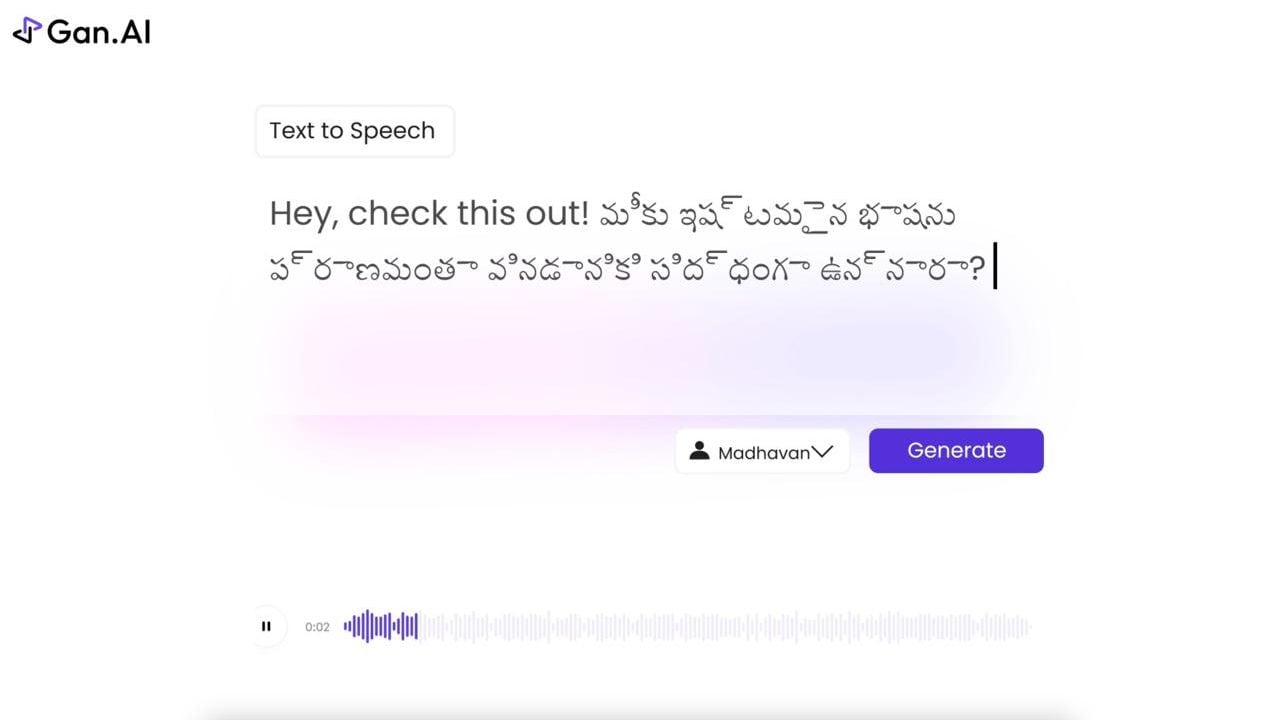Gan.AI, a leading startup in conversational AI research and products has announced the launch of Myna-mini, a text-to-speech (TTS) model and API. The TTS model supports 22 official Indic languages including English.
“Myna-mini represents a significant step towards making AI accessible and useful for everyone, regardless of the language they speak,” said Suvrat Bhushan, founder and CEO of Gan.AI. “We’re excited to bridge the language gap and bring advanced voice technology to over 1 billion people.”
Gan.AI has also announced plans for more advanced models, including: Myna and Myna-Large: Set to be the one of the world’s largest TTS models in terms of training data and parameter count, Zero-shot cross-lingual voice cloning, Lip-sync API, Avatar API
Gan.AI’s technology has been used by brands for personalizing video and audio campaigns, including Uber, Cadbury, Swiggy, Zomato, the San Antonio Spurs, and Mumbai Indians.
The key features of Myna-mini includes support for 22 Indic languages and English for comprehensive linguistic coverage, multiple distinct voices which reflects diverse regions of India, native code-mixed language support for seamlessly handling of multilingual inputs among others.
Moreover, its code-mixed support helps Myna-mini to seamlessly handle text that mixes multiple languages in a single sentence or paragraph. This reflects how people naturally communicate, switching between languages mid-conversation.
Myna-mini is the result of extensive research and development by Gan.AI’s team, which includes experts from prestigious institutions and tech giants such as Stanford, FAIR, IITs, BITS, Samsung, Microsoft, and Adobe Research. The team boasts over 1000 combined research citations in the field.
